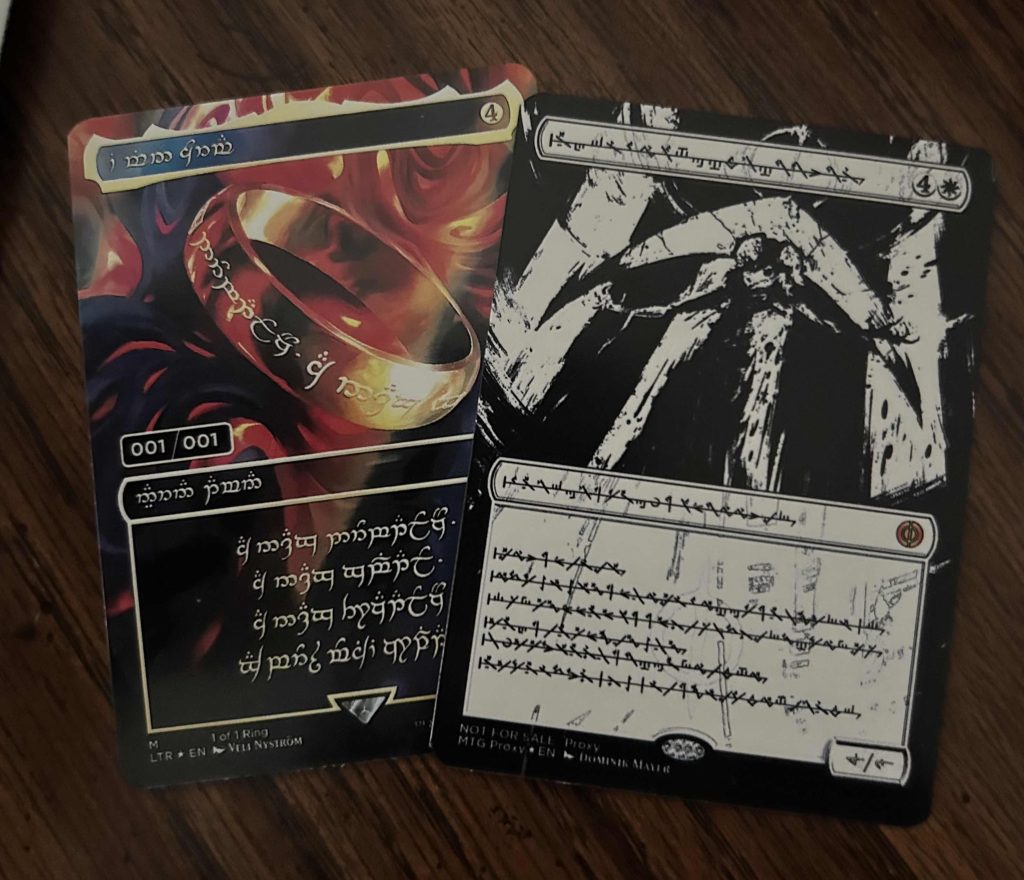Blog
If you’re a Magic: The Gathering (MTG) player, you’ve probably heard of proxies. Proxies are essentially copies of MTG cards that are not officially printed by Wizards of the Coast. Instead, they are made by players or third-party companies.
Proxies are a hot topic in the MTG community, with opinions ranging from staunch opposition to enthusiastic support. In this article, we’ll go over everything you need to know about MTG proxies, including what they are, how they’re made, and whether or not they’re legal. We’ll also address some common questions and concerns that players have about proxies.

What are MTG proxies?
MTG proxies are cards that are made to look like official MTG cards but are not printed by Wizards of the Coast. Proxies are often used to play with cards that are expensive, rare, or difficult to obtain. For example, if you want to play with a Black Lotus, but you can’t afford to buy one, you might use a proxy instead.
Proxies can be made by players themselves, or they can be purchased from third-party companies. Some players enjoy making their own proxies as a creative project, while others prefer to buy them from established companies.
How are MTG proxies made?
There are a few different ways to make MTG proxies, but the most common method is to print them on a printer using high-quality cardstock. Many players use a program like Magic Set Editor or MTG.design to create the card image, and then print it out on cardstock. Once the card is printed, it can be cut to size and inserted into a sleeve with an official MTG card behind it for added stability.
Another method of creating proxies is to alter an existing card. This involves taking an official MTG card and painting over the original artwork to create a new image. While this method can be more time-consuming and difficult than simply printing a card, it can result in a more unique and personalized proxy.
Are MTG proxies legal?
The legality of MTG proxies is a bit of a gray area. Technically, using proxies in official MTG tournaments is not allowed, as tournament rules require players to use official cards. However, many casual playgroups and local game stores allow proxies to be used in their games.
Additionally, Wizards of the Coast has not taken a hard stance against proxies. While they do not officially condone the use of proxies, they have stated that they understand why players might use them and that they are not actively policing their use.
It’s worth noting that using counterfeit cards that are made to look exactly like official MTG cards is illegal and can result in serious consequences, including fines and legal action.
Conclusion:
MTG proxies can be a useful tool for players who want to play with cards that they can’t afford or can’t obtain. While the legality of proxies is a bit of a grey area, they are generally accepted in casual playgroups and local game stores. Just be sure to use Proxies responsibly and avoid purchasing or making counterfeit cards that could result in legal consequences. If you’re interested in using proxies, consider making your own or purchasing them from a reputable company like Printing Proxies.
Ultimately, the decision to use proxies is up to you. Just remember that using proxies in official tournaments is not allowed, and using counterfeit cards is illegal. As long as you use proxies responsibly and within the rules of your playgroup or store, they can be a fun and affordable way to enjoy MTG
FAQS
Yes, printing proxies is often much cheaper than buying official cards, especially for rare or expensive cards.
No, official MTG tournaments require players to use official cards.
No, as long as you use sleeves and an official MTG card behind the proxy for added stability, using proxies should not damage your cards.

